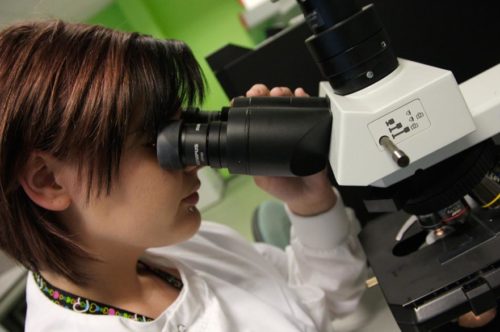If you don’t have the right qualifications to start our BSc (Hons) Biomedical Science degree or if you want to gain more confidence in higher level work, you could opt to start your studies with a foundation year. You’ll start by completing a foundation year, which provides well structured support, allowing you to develop your scientific skills and knowledge.
Biomedical Science is an exciting, interdisciplinary subject exploring the normal functioning of the human body at the molecular, cellular and whole organism levels and how understanding these processes enables breakthroughs in the treatment of human disease and improvements to health.
Placing significant emphasis on laboratory techniques and scientific communication from writing labs reports, critical evaluation of scientific data and solving research problems, this biomedical science course provides essential skills required for a wide range of scientific careers.
What you will study
Foundation Year: Biomedical Science Degree
- Foundation biology
- Introduction to human anatomy and physiology
- Foundation chemistry
- Physical science
- Key skills and professional development
- Scientific data literacy
Year one: Biomedical Science Degree
- Biological research skills
- Human anatomy and physiology
- Molecule, membranes and cells
- Introduction to genetics and evolution
- Microorganisms and the dynamic cell
- Human growth and development
Year two: Biomedical Science Degree
- Case-based learning
- Frontiers in Biology
- Medical microbiology
- Human molecular genetics
- Cellular pathology and disease processes
Year three: Biomedical Science Degree
- Research project
- Clinical biochemistry and pharmacology
- Clinical and molecular immunology
With biomedical option:
- Global challenges in infectious disease
- Epidemiology and public health
Or anthropology option:
- Humans and other primates
- Human variation and forensic anthropology
Teaching
You will learn through lectures, tutorials and practical classes. You will typically spend 15 – 20 hours in scheduled classes per week and are expected to spend the same amount of time doing background reading and working on assignments.
There is strong emphasis on applied, practical learning and all students undertake an extensive project in their final year. A wide range of projects is available, from microbiology, applied physiology and genetics and cellular pathology.
Support
Your course leader is your first point of contact to discuss any questions you may about the course in general. The module leaders will be able to help you, specific issues on a particular module, for example in relation to assessments.
All students will be assigned an academic member of staff at the start of their studies to provide more general help, for example on career development and academic life in general
Assessment
Assessment methods vary by module and include coursework such as laboratory reports, essays, oral presentations, problem solving and in-class or online tests as well as written examinations.
Zobacz więcej na stronie uniwersytetu >>
Wiza studencka do Wielkiej Brytanii
Aby studiować w Wielkiej Brytanii potrzebujesz wizy studenckiej. Aby złożyć wniosek o taką wizę studencką musisz zdjać certyfikat językowy na poziomie B2.
Uważaj! Do celów wizowych musisz wybrać wyłącznie egzamin w wesji Secure English Language Test (SELT) UKVI .
Co to jest test SELT UK VI registration? Przeczytaj więcej o testach SELT UKVI >>




















